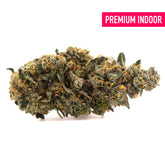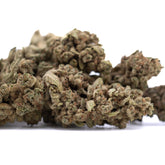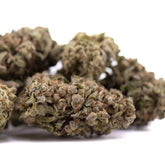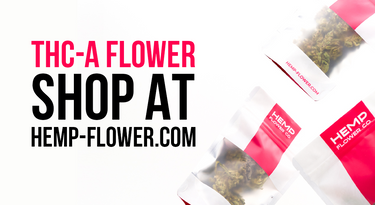Is CBD Flower Legal? 2025 State-by-State Guide

The question "Is CBD flower legal?" continues to confuse consumers across the United States in 2025. While the 2018 Farm Bill federally legalized hemp and its derivatives, including CBD flower, the legal landscape remains complex due to varying state regulations. This comprehensive guide will clarify CBD flower laws and help you understand where you can legally possess, use, and purchase legal CBD flower.
The confusion surrounding hemp flower legal status stems from the fact that CBD flower looks, smells, and often appears identical to marijuana. However, the legal distinction lies entirely in the THC content and source of the plant. Understanding these nuances is crucial for consumers who want to stay compliant while enjoying the benefits of legal hemp flower.
Federal Legal Framework for CBD Flower
The 2018 Farm Bill and Hemp Flower Legalization
The Agricultural Improvement Act of 2018, commonly known as the Farm Bill, fundamentally changed the legal status of hemp flower legal products across the United States. This landmark legislation removed hemp and its derivatives from the Controlled Substances Act, provided the plants contain no more than 0.3% Delta-9 THC on a dry weight basis.
Under federal law, CBD flower legal products must meet specific criteria to maintain their legal status. The hemp plant must be grown by licensed cultivators following state or USDA-approved programs. This federal framework established the foundation for CBD flower regulations that states could adopt or modify according to their preferences.
The Farm Bill also distinguished between hemp and marijuana based solely on THC content, not the plant's appearance or other cannabinoid profiles. This means that legal CBD flower can contain high levels of CBD, CBG, CBN, and other non-intoxicating cannabinoids while remaining federally compliant.
The 0.3% Delta-9 THC Limit for Legal CBD Flower
The 0.3% Delta-9 THC threshold serves as the critical dividing line between legal hemp flower and federally illegal marijuana. This percentage is measured on a dry weight basis, meaning the flower must be tested after proper curing and drying processes.
CBD flower compliance requires rigorous testing at multiple stages of cultivation and processing. Licensed testing laboratories must verify THC levels using approved methodologies to ensure products remain within legal limits. Any CBD flower testing above 0.3% Delta-9 THC is considered marijuana and subject to different legal restrictions.
The measurement uncertainty rule allows for some variance in testing results, typically up to 0.35% Delta-9 THC when accounting for laboratory testing margins of error. This provision helps protect cultivators and consumers from inadvertent violations due to natural plant variations or testing inconsistencies.
DEA's Stance on Hemp Flower and CBD Products
The Drug Enforcement Administration (DEA) has generally aligned with federal hemp legislation regarding CBD flower legal status. However, the agency maintains that any cannabis-derived product exceeding 0.3% Delta-9 THC remains a controlled substance under federal law.
The DEA has issued interim final rules clarifying that hemp flower legal products include any part of the Cannabis sativa plant with Delta-9 THC concentrations below the federal threshold. This includes flowers, leaves, stems, and seeds, provided they meet testing requirements and come from licensed hemp operations.
Law enforcement training regarding legal CBD flower has improved significantly since 2018, though field testing limitations can still create challenges for consumers. The DEA recommends that consumers carry proper documentation and lab results when possessing CBD flower to avoid potential misunderstandings.
USDA Regulations on Hemp and CBD Flower Testing
The United States Department of Agriculture (USDA) oversees hemp cultivation programs and sets testing standards for CBD flower regulations. The USDA's Hemp Production Program establishes minimum requirements for state and tribal hemp programs, including mandatory testing protocols for THC levels.
Under USDA guidelines, legal hemp flower must be tested within 15 days of harvest using DEA-registered laboratories or other USDA-approved testing facilities. Testing must sample the top one-third of the plant where THC concentrations are typically highest, ensuring accurate compliance verification.
The USDA also requires proper disposal of any hemp crops testing above legal THC limits, with specific protocols for destroying non-compliant plants. These regulations help maintain the integrity of hemp flower legal markets and prevent illegal marijuana from entering commercial channels.
Understanding Hemp vs Marijuana
Legal Definition of Hemp Flower Containing CBD
Legal CBD flower is derived from Cannabis sativa plants specifically cultivated to produce high CBD content while maintaining Delta-9 THC levels below 0.3%. These plants are bred through selective genetics to maximize beneficial cannabinoids while minimizing psychoactive compounds.
The legal definition focuses exclusively on chemical composition rather than plant genetics or morphology. Two identical-looking plants could have vastly different legal statuses based solely on their THC content. This chemical-based definition allows hemp flower legal products to offer similar therapeutic benefits to marijuana without the legal complications.
Hemp flower contains a full spectrum of cannabinoids, terpenes, and other beneficial compounds found in cannabis plants. CBD flower typically features CBD as the dominant cannabinoid, though many strains also contain significant amounts of CBG, CBC, CBN, and other non-intoxicating compounds.
How CBD Flower Differs from Marijuana
While CBD flower and marijuana may appear visually identical, their legal and physiological effects differ significantly. The primary distinction lies in THC content and the resulting psychoactive potential of each product type.
Legal hemp flower produces minimal to no intoxicating effects due to low THC concentrations. Users typically report feelings of relaxation, stress relief, and mild euphoria without the impairment associated with marijuana use. This makes CBD flower legal products suitable for daytime use and consumers seeking therapeutic benefits without intoxication.
Marijuana, conversely, contains THC levels ranging from 15% to 30% or higher in modern cultivars. These elevated THC concentrations produce significant psychoactive effects, including altered perception, increased appetite, and potential impairment of cognitive and motor functions.
THC Limits in Legal CBD Flower
CBD flower regulations strictly enforce the 0.3% Delta-9 THC limit established by federal law. However, some states have implemented even stricter limitations, requiring THC levels below 0.1% or prohibiting detectable THC entirely in legal CBD flower products.
The 0.3% threshold represents total Delta-9 THC content, not THC-A (tetrahydrocannabinolic acid), which is the non-psychoactive precursor to THC found in raw cannabis. When hemp flower is heated through smoking or vaping, THC-A converts to Delta-9 THC, but the legal limit applies to the converted amount.
Understanding these technical distinctions helps consumers navigate hemp flower laws 2025 requirements and select products that meet their local compliance standards.

State-by-State Breakdown of CBD Flower Laws
Fully Legal States for CBD Flower
The majority of U.S. states have adopted hemp flower laws 2025 that align with federal regulations, allowing the possession, use, and sale of legal CBD flower without additional restrictions. These states include Alabama, Alaska, Arizona, Arkansas, California, Colorado, Connecticut, Delaware, Florida, Georgia, Hawaii, Illinois, Indiana, Kansas, Kentucky, Louisiana, Maine, Maryland, Massachusetts, Michigan, Minnesota, Mississippi, Missouri, Montana, Nebraska, Nevada, New Hampshire, New Jersey, New Mexico, New York, North Carolina, North Dakota, Ohio, Oklahoma, Oregon, Pennsylvania, Rhode Island, South Carolina, Tennessee, Texas, Utah, Vermont, Virginia, Washington, West Virginia, Wisconsin, and Wyoming.
In these states, adults can legally purchase CBD flower from licensed retailers, smoke or vape hemp flower in permitted areas, and possess reasonable amounts for personal use. Most states require purchasers to be at least 18 years old, though some have raised the minimum age to 21 for all cannabis products, including hemp flower legal items.
Local jurisdictions within these states may impose additional restrictions on CBD flower legal use, particularly regarding public consumption. Many cities and counties prohibit smoking any substance, including legal hemp flower, in public spaces, workplaces, or near schools and playgrounds.
Restricted States with Special CBD Flower Regulations
Several states have implemented CBD flower regulations that go beyond federal requirements, creating additional compliance hurdles for consumers and businesses. Iowa, for example, operates a restrictive CBD program that limits legal CBD flower access to patients with specific medical conditions and requires registration with the state health department.
South Dakota maintains unique restrictions on hemp flower legal products, requiring special licensing for retailers and limiting the forms in which CBD can be sold. The state prohibits smoking or vaping CBD flower while allowing other hemp-derived products like oils and edibles.
These restricted states often require legal hemp flower businesses to obtain special permits, maintain detailed tracking systems, and submit to regular inspections. Consumers in these areas should verify current hemp flower laws 2025 requirements before purchasing or possessing CBD flower products.
Prohibited and Gray Area States
Idaho remains one of the few states where CBD flower legal status is explicitly prohibited under state law. Idaho's controlled substances act includes all Cannabis sativa derivatives, regardless of THC content, making possession of any hemp flower potentially illegal under state law despite federal legality.
Some states exist in legal gray areas where CBD flower regulations remain unclear or unenforced. These jurisdictions may technically prohibit legal CBD flower under existing marijuana laws while lacking specific hemp legislation to create exemptions for federally compliant products.
In prohibited states, consumers risk criminal penalties for CBD flower possession, even when products meet federal compliance standards. Legal alternatives may include CBD isolate products, broad-spectrum extracts without THC, or relocating to states with clear hemp flower legal frameworks.
Shipping and Interstate Commerce
CBD Flower Shipping Regulations
CBD flower shipping across state lines is federally legal when products meet hemp compliance standards and both origin and destination states allow legal CBD flower. However, shipping companies maintain their own policies regarding cannabis products that may restrict hemp flower transportation.
The United States Postal Service (USPS) officially allows CBD flower shipping for compliant hemp products, provided mailers include proper documentation and avoid shipping to prohibited states. Private carriers like FedEx and UPS maintain more restrictive policies, often prohibiting any cannabis-related shipments regardless of legal status.
Successful legal hemp flower shipping requires proper packaging, clear labeling, and inclusion of lab results or certificates of analysis. Discreet packaging helps avoid unnecessary scrutiny while transparent labeling ensures compliance with transportation regulations.
Mail Carrier Policies on CBD Flower
Different shipping carriers have varying policies regarding CBD flower shipping, creating challenges for consumers and businesses operating in the legal CBD flower market. Understanding these policies helps ensure successful delivery and compliance with carrier requirements.
USPS, as a federal agency, follows federal hemp regulations and allows hemp flower legal shipments when properly documented. The postal service requires mailers to declare hemp contents and provide certificates of analysis confirming THC compliance for CBD flower shipments.
Private carriers often maintain blanket prohibitions on cannabis products, including legal hemp flower, due to their own risk management policies. These companies may refuse shipments, confiscate packages, or terminate service agreements when CBD flower shipping violations are discovered.
Interstate Transport of CBD Flower
Personally transporting legal CBD flower across state lines is federally legal when both states permit hemp possession and products meet compliance standards. However, travelers should research destination hemp flower laws 2025 requirements before crossing state boundaries with CBD flower.
Airport security and transportation authorities generally permit hemp flower legal products on domestic flights when properly labeled and documented. Travelers should carry lab results, purchase receipts, and product packaging to demonstrate compliance with CBD flower regulations.
International travel with legal hemp flower is strongly discouraged, as many countries maintain strict cannabis prohibitions regardless of THC content. Customs officials may confiscate CBD flower and impose penalties even when products are legal in the traveler's home jurisdiction.

What Consumers Should Know
Verifying Local CBD Flower Laws
Staying informed about local CBD flower legal requirements is essential for consumers who want to avoid legal complications. State and local laws can change rapidly, making regular verification of current hemp flower laws 2025 critical for ongoing compliance.
Consumers should consult official state government websites, attorney general opinions, and local ordinances to understand applicable CBD flower regulations. Many states publish hemp program information and FAQ sections addressing common questions about legal CBD flower possession and use.
Legal resources and hemp advocacy organizations often provide updated information about changing hemp flower legal landscapes. Following reputable industry publications and legal blogs helps consumers stay current with evolving CBD flower legislation.
Checking Lab Reports for CBD Flower Compliance
Purchasing legal CBD flower from reputable vendors who provide comprehensive lab testing ensures compliance with CBD flower regulations. Third-party certificates of analysis (COAs) should verify cannabinoid content, THC levels, and safety testing for pesticides, heavy metals, and microbials.
Quality hemp flower legal vendors provide easily accessible lab results through QR codes, websites, or printed documentation included with products. These reports should be recent, typically within six months of purchase, and conducted by DEA-registered or ISO-certified laboratories.
Understanding how to read lab reports helps consumers verify CBD flower compliance and quality. Key information includes total THC content (including THC-A), CBD percentages, terpene profiles, and safety screening results for contaminants.
Documentation Requirements for CBD Flower Travel
Maintaining proper documentation when traveling with legal hemp flower protects consumers from potential legal misunderstandings. Essential documents include purchase receipts, lab results, original product packaging, and any relevant medical recommendations or prescriptions.
Original packaging helps demonstrate the CBD flower legal source and compliance status of products. Reputable vendors include batch numbers, harvest dates, and compliance statements on product labels that correspond to available lab testing results.
Digital copies of documentation stored on smartphones provide backup verification when original paperwork is unavailable. Consumers should photograph lab results, receipts, and product information before traveling with hemp flower to ensure access during potential encounters with law enforcement.
Law Enforcement Considerations
How Police Handle CBD Flower Encounters
Law enforcement attitudes toward CBD flower legal products have evolved significantly since federal hemp legalization, though field identification challenges persist. Many police departments have updated training and policies to address hemp flower legal encounters, but procedures vary significantly between jurisdictions.
Field testing kits used by law enforcement cannot distinguish between legal CBD flower and marijuana based on THC content alone. Visual inspection, smell, and preliminary tests may indicate cannabis presence without confirming legal compliance, potentially leading to temporary detention or confiscation pending laboratory analysis.
Cooperation and transparency during police encounters help resolve CBD flower situations quickly. Providing documentation, explaining the legal status of hemp flower legal products, and remaining calm and respectful can prevent escalation while officers verify compliance.
Importance of Proper CBD Flower Labeling
Clear, accurate labeling on legal CBD flower products helps law enforcement quickly identify compliant hemp versus illegal marijuana. Professional packaging with compliance statements, lab result references, and vendor contact information demonstrates legitimacy and regulatory compliance.
CBD flower regulations in many states require specific labeling elements, including THC content warnings, batch tracking information, and safety disclaimers. Consumers should purchase hemp flower only from vendors who meet these professional labeling standards.
Removing legal hemp flower from original packaging eliminates important identification information that could prevent legal complications. Maintaining products in labeled containers with accessible documentation reduces confusion during potential law enforcement encounters.
Legal Protections for Compliant CBD Flower
Federal hemp legislation provides strong legal protections for CBD flower legal products that meet compliance standards. The 2018 Farm Bill explicitly prohibits states from interfering with interstate hemp commerce or restricting transportation of federally compliant legal CBD flower.
However, legal protections depend on product compliance and proper documentation. Hemp flower exceeding THC limits or lacking proper testing loses federal protection and becomes subject to marijuana laws and penalties.
Consumers facing legal challenges related to hemp flower legal products should consult qualified attorneys familiar with cannabis law. Legal representation helps navigate complex CBD flower regulations and protect consumer rights under federal hemp legislation.
Frequently Asked Questions
Q: Is CBD flower legal in all 50 states? A: CBD flower legal status varies by state despite federal legalization. While most states allow compliant hemp flower, some maintain restrictions or outright prohibitions. Always verify local hemp flower laws 2025 before purchasing or possessing CBD flower products.
Q: Can I travel on airplanes with CBD flower? A: Domestic air travel with legal CBD flower is generally permitted when products meet federal compliance standards and both departure and arrival states allow hemp possession. Always carry proper documentation and check specific airline policies regarding hemp flower transportation.
Q: How can I tell if CBD flower is legal? A: Legal CBD flower must contain less than 0.3% Delta-9 THC and include third-party lab testing verification. Purchase only from reputable vendors who provide certificates of analysis confirming CBD flower compliance with federal and state regulations.
Q: Will CBD flower show up on drug tests? A: Legal hemp flower contains trace amounts of THC that may accumulate with regular use and potentially trigger positive drug test results. Consumers subject to drug testing should consider THC-free alternatives or consult with employers about CBD flower policies.
Q: Can I grow my own CBD flower legally? A: Home cultivation of hemp flower legal plants requires specific licensing in most states and compliance with testing requirements. Few states allow unlicensed personal hemp cultivation, making commercial purchase of legal CBD flower the safest option for most consumers.
Q: What's the difference between CBD flower and marijuana? A: The only legal difference between CBD flower and marijuana is THC content. Legal hemp flower contains less than 0.3% Delta-9 THC, while marijuana exceeds this threshold and remains federally illegal.
Q: Are there age restrictions for buying CBD flower? A: Most states require purchasers of legal CBD flower to be at least 18 years old, though some jurisdictions have raised the minimum age to 21. Always verify local age requirements before attempting to purchase hemp flower products.
Q: Can I smoke CBD flower in public? A: Public consumption laws for CBD flower legal products vary significantly by jurisdiction. Many areas prohibit smoking any substance in public spaces, regardless of legal status. Check local ordinances regarding hemp flower consumption in public areas.
Conclusion
The legal landscape for CBD flower legal products continues evolving as states refine their hemp programs and federal agencies provide additional guidance. While the 2018 Farm Bill established federal legality for compliant hemp flower, consumers must navigate varying state and local regulations to ensure full compliance.
Understanding CBD flower regulations requires ongoing attention to legal developments and careful verification of local laws. The safest approach involves purchasing legal CBD flower from reputable vendors who provide comprehensive lab testing and maintain current compliance documentation.
As hemp flower laws 2025 continue developing, consumers should stay informed through official government sources and industry publications. The expanding acceptance of legal hemp flower suggests continued legal clarification and broader access to compliant CBD flower products.
For consumers seeking legal CBD flower options, choosing vendors who prioritize compliance, quality, and transparency ensures the best experience while minimizing legal risks. By staying informed about CBD flower legal requirements and purchasing from reputable sources, consumers can confidently enjoy the benefits of hemp flower within the bounds of applicable laws.
Disclaimer: This article provides general information about CBD flower legality and should not be considered legal advice. Laws regarding hemp and CBD products can change rapidly and vary significantly by jurisdiction. Always consult current local and state regulations before purchasing, possessing, or using CBD flower products. When in doubt, seek guidance from qualified legal professionals familiar with cannabis law in your area.













